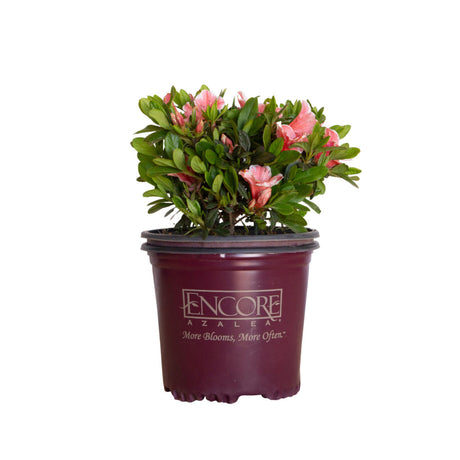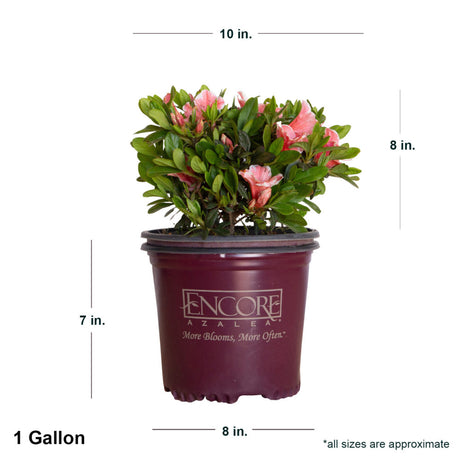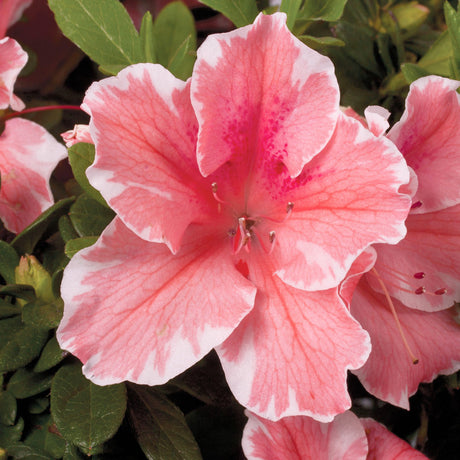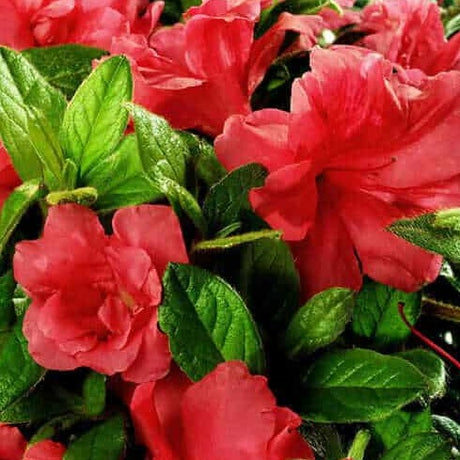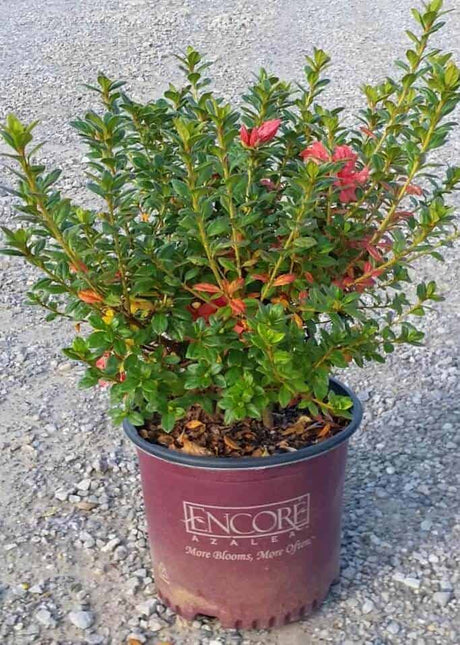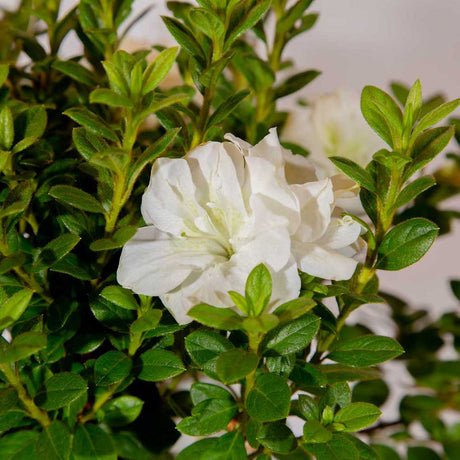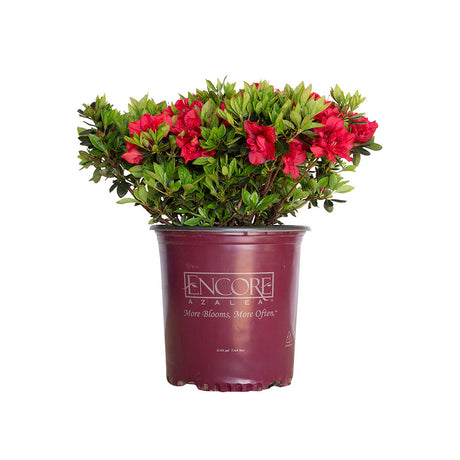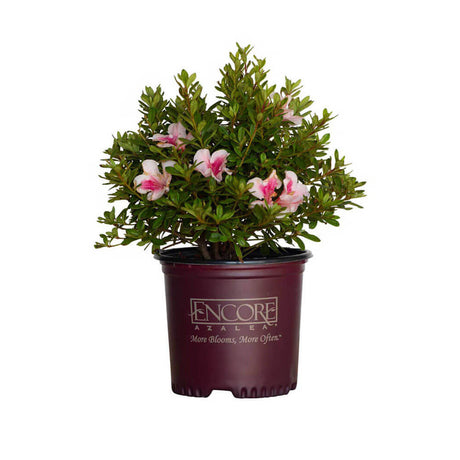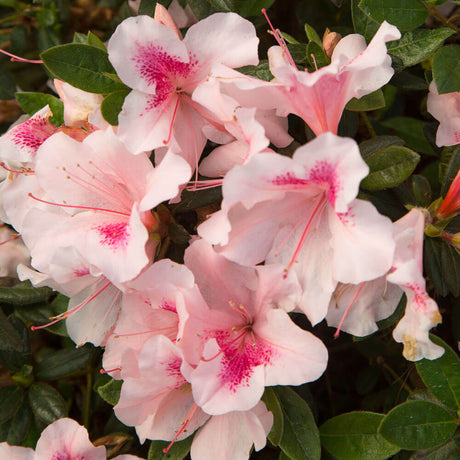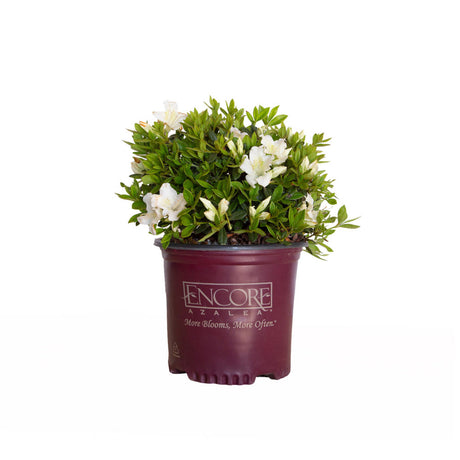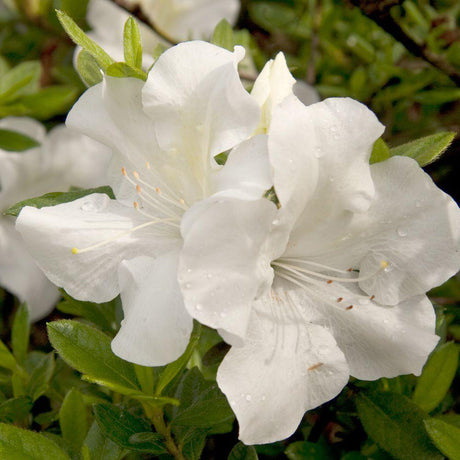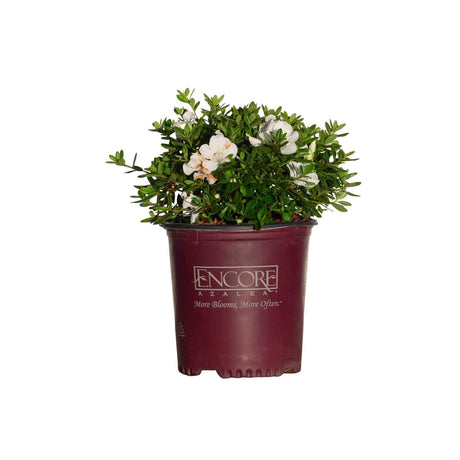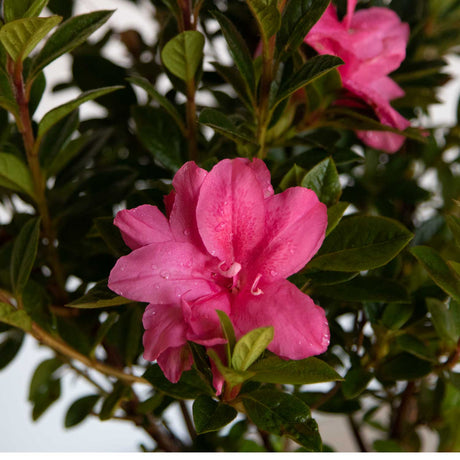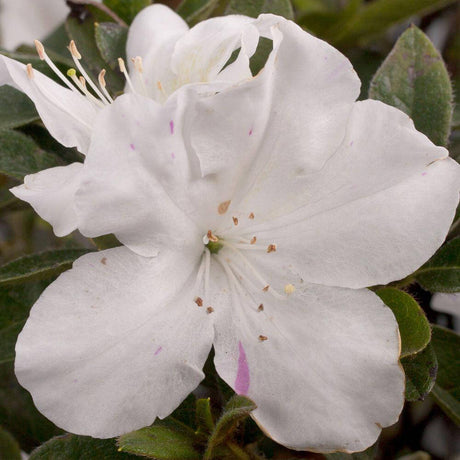FiltersFilter & Sort
- Up to 18% off
Encore Azalea
From $17.99$21.99Unit price /UnavailableIn stock (5118) - Up to 11% off
- Up to 18% off
Encore Azalea
From $17.99$21.99Unit price /UnavailableIn stock (5215)
Azaleas are flowering shrubs in the genus Rhododendron (although notably different from traditional Rhododendrons) that include various deciduous and evergreen varieties. Much like Gardenias, Azaleas are a quintessential southern beauty. If you happen to be driving through the sweet-tea-sippin’ South at the right time of the year, chances are you’ll be graced by a scene of scores and scores of stunning blooms in white, orange, yellow, pink, red, and purple. There’s really nothing like it.
PlantsbyMail.com is proud to offer numerous different selections ranging from reliable classics to charming brand new varieties!
Why Should I Plant Azaleas?
There are numerous great answers to this question. Here are a few reasons.
They come in all shapes and sizes
There’s one for every landscape! Some get 8-10 feet tall and some max out at only 2.5 feet tall. For this reason, they’re great at solving landscaping problems where you’re not sure what to plant. There are fast-growing selections to fill in an empty spot quickly, and there are slow-growing dwarf varieties that rarely need maintenance.
They’re powerhouse bloomers
Whether they bloom once a year or multiple times a year, they’re sure to provide you with a bounty of gorgeous flowers. Most varieties will be nearly completely covered in flowers during their bloom period. Hummingbirds and butterflies also enjoy these flowers and are sure to visit them regularly.
They come in many bloom colors and styles
We guarantee that every gardener will be able to find an Azalea bloom that they love. Some blooms are large and some are small, some are single-form and others are double, some are a single hue while others are multi-colored. Just spend a little time looking and we trust you’ll find several that you can’t get enough of.
What Type(s) Should I Get?
Our stock can be separated into three main groups.
Classic Evergreen Varieties
Most of our classic selections will bloom once or twice every year. They’re tried and true favorites that won’t let you down. They’re evergreen and come in nearly all sizes.
Encore Azaleas
Encore Azaleas rebloom up to 3 times per year! They range from intermediate to dwarf in size and come in almost every color known to this breed. For a true-red beauty, check out the Autumn Fire Encore Azalea. It’s a stunner!
Deciduous Selections
Deciduous, native types are where you’re going to find your boldest yellow and orange hues. These flowers appear once a year in Spring. They’re also lightly fragrant, while blooms from evergreen types are not. These varieties lose all of their leaves in winter and return with new growth and blooms in spring.
When Should I Plant?
The ideal time to plant these bloomers is generally in spring or fall. However, that will depend on where you live. Some warmer climates can plant nearly all year long.
How late can I plant in the fall?
We recommend planting them two months before the average expected first freeze date in your area. However, you can be successful in planting them even just one month before your first frost. This is because the ground stays warmer than the air for up to a month in winter. But in this case, you’ll need to provide some kind of coverage over the plant, such as a freeze cloth or tarp for the first couple of freezes and for extended hard freezes.
Where Should I Plant Them?
This will depend largely on what sort of planting conditions you’re dealing with. Dwarf varieties are perfect for foundation plantings around your home and in mixed garden beds. While larger varieties are ideal for house-corners and hedges.
Shade
Most types struggle in all-day heavy Shade. They tend to grow poorly and won’t bloom well, if at all. However, many will do well with just an hour or two of direct sun, or all-day filtered sun. These tend to be classic selections and/or varieties with a single bloom cycle, such as the Pride of Mobile Azalea.
Partial-Sun
Areas with 3-5 hours of direct sun can be classified as Partial-Sun. Most Azaleas grow well in these conditions.
Full-Sun
Many varieties will struggle in all-day Full-Sun, however, Encores will grow in Full Sun in most USDA Zones! In this setting, they tend to get more seasonal foliage stress, but they also bloom like crazy thanks to the additional rays.
Deciduous types also do well in Full Sun.
How to Plant:
- First, determine your planting location based on the requirements of your variety.
- Dig a hole 3x as wide as the root ball of your plant.
- The hole should only be so deep that your plant sits even with the ground around it. If you have poor drainage, try planting it so that it sits a few inches above the soil around it.
- Mix your native soil with some good quality garden soil or compost to enrich your planting location and encourage root growth.
- Backfill the hole with the soil mixture.
- Now is a good time to mulch and fertilize your plant. Mulch with 3-4 inches of bark mulch to help your plant retain moisture. Fertilize with a slow-release acid-loving plant fertilizer.
- Water your new planting deeply afterward and then 2-3 times per week for the rest of the growing season depending on the weather in your area.
More Planting Tips:
- This species grows well in acidic soil. If your soil is too alkaline, your plants will likely struggle. To fix this issue, use a gradual soil acidifier such as Elemental Sulfur.
- They need good drainage. If you have poor drainage, put 6-8 inches of pine bark mulch at the bottom of your planting hole and make sure the root ball of your plant extends several inches above the ground around it. Then just mound soil around the base of the plant.
- Clay soil can prove challenging for these guys. However, if your soil is clay-heavy, mix pine bark in with your soil at a ratio of about 1:1. This will allow them to get the drainage and aeration they need to thrive.


